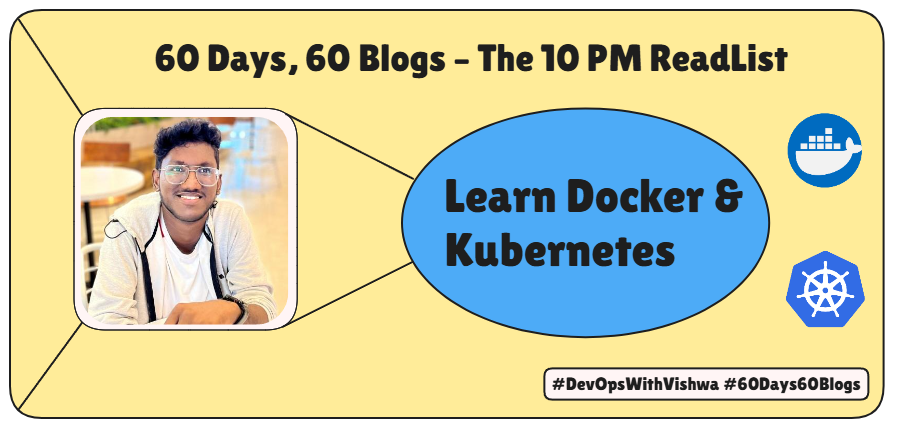ReadList #5 - Introduction to Kubernetes:
 VISHWA S
VISHWA S
1. Why is Kubernetes Needed?
Imagine running 100+ containers across multiple servers manually. Maintaining them without automation is a nightmare!
2. Example Scenario
Let’s say you have an e-commerce website with:
High traffic during sales → Need scaling (increase instances).
Server failures → Need fault tolerance (auto-recovery).
Global users → Need load balancing (distribute traffic).
Night-time issues → Can’t rely on a single person waking up at 2 AM to restart services.
💡 Solution? → Kubernetes (K8s) automates all of this!
3. Kubernetes vs. Manual Maintenance
| Feature | Manual (Without K8s) | With Kubernetes |
| Scaling | Manually start/stop containers | Auto-scales based on load |
| Load Balancing | Needs external setup | Built-in load balancing |
| Fault Tolerance | Restart containers manually | Auto-restarts failed pods |
| Disaster Recovery | Manual backup & restore | Automated recovery |
| Manpower Needed | 24/7 monitoring required | Minimal intervention |
4. Do You Really Need Kubernetes?
🔹 For Small Projects → Docker Compose is enough
🔹 For Large-Scale Apps → Kubernetes is better
When to Use Docker Compose?
✅ Few containers (1-10 services)
✅ Runs on a single server
✅ Simple setups like local development & small deployments
When to Use Kubernetes?
✅ Many containers across multiple servers
✅ Auto-scaling & high availability required
✅ Multiple teams managing infrastructure
5. Key Problems Solved by Kubernetes
🔹 Scaling → Auto-adds/removes containers based on traffic
🔹 Load Balancing → Distributes traffic across multiple containers
🔹 Fault Tolerance → Auto-restarts crashed containers
🔹 Disaster Recovery → Self-healing and backup mechanisms
🔹 Multi-Zone Deployments → Handles servers in different locations
Conclusion
Kubernetes addresses the challenges of managing containerized applications at scale. With its powerful orchestration capabilities, it provides a robust solution for deploying, scaling, and maintaining applications consistently across various environments. As applications grow more complex, Kubernetes becomes essential for achieving reliability, high availability, and streamlined DevOps workflows. Stay tuned for more posts as I dive deeper into Kubernetes concepts and commands!
Subscribe to my newsletter
Read articles from VISHWA S directly inside your inbox. Subscribe to the newsletter, and don't miss out.
Written by

VISHWA S
VISHWA S
Hey there! I'm Vishwa, a DevOps Engineer. Curious about me? Check out my profile and posts, but here's a quick overview. I've spent the past two years building credibility, consistently working on projects, and upskilling myself. I'm a self-learner, and my posts reflect my journey. When it comes to technical expertise, I'm proficient in Linux, Networking, Shell Scripting, Docker, Ansible, Terraform, Kubernetes, Prometheus, Grafana, Loki, Jenkins, GitHub Actions, Python, Go, and Java. Wondering about my cloud experience? I'm well-versed in AWS, Digital Ocean, and GCP. I'm also skilled in troubleshooting. My ability to self-motivate and search for solutions allows me to quickly adapt to new technologies. And yes, I love writing. Sharing knowledge through blogs is something I’m passionate about. To reach out to Me, You can do DM and also leave an E-mail here at vishwa20042003@gmail.com, Waiting for your Connections and Opportunities.